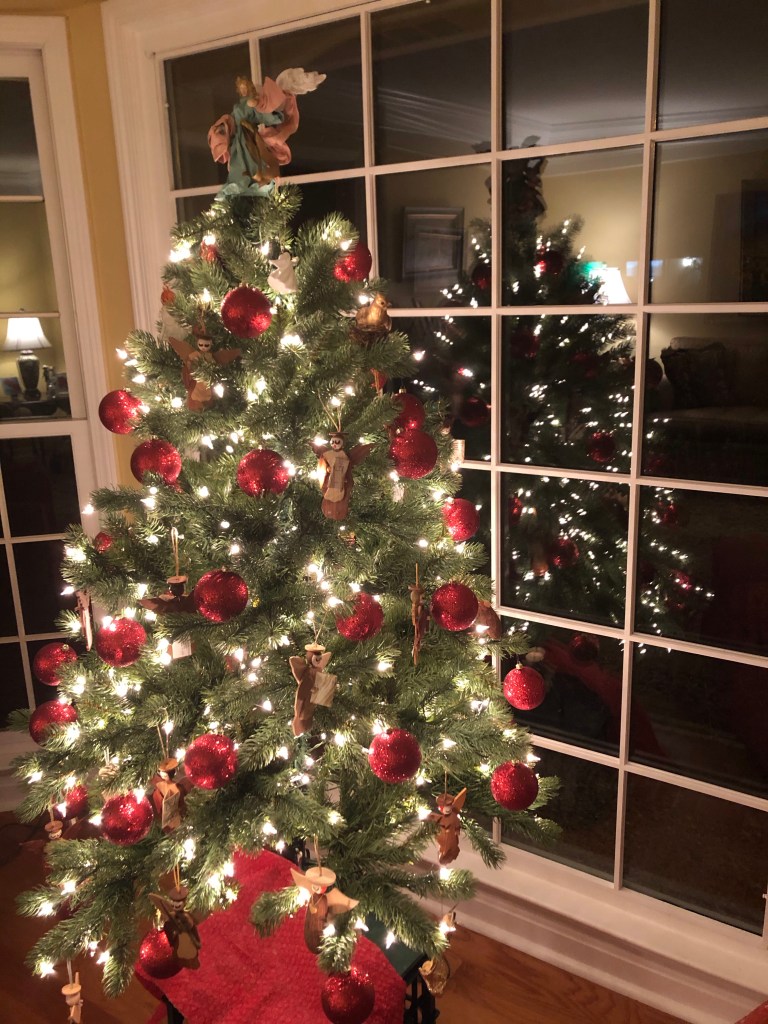Winter has stripped the trees of their leaves. Ice coats tree limbs. A freeze has encased our graceful evergreens. Frozen water beads on the hollies. And ice laces our metal deck chairs.
One February years ago we awoke to the snapping explosions of frozen limbs. The sap in the dogwood outside our bedroom window had begun to rise. An ice storm had frozen the sap and exploded many of its limbs, denuding the tree down to its major trunks. That dogwood grew new branches and each spring has rewarded us with a stunning display of blooms and provided shade for azaleas and yews beneath its spreading boughs.
Much has been stripped of us in 2020. We lost people dear to us. We cancelled travel visits. We stopped shopping in local stores. Restaurant dining was out of the question. Our church went to online services. The library closed. We suspended many favorite activities. Worst, we were cut off from precious time with our families and friends.
We watched with horror a divided nation, desperate for answers and struggling for a way forward in a chaotic, troubling world. We examined ourselves for unreasonable righteousness and found ourselves lacking. At times we discovered kindness unappreciated and misinterpreted. What was all the suspicion about? The anger? The shouting? The violence? The mean memes?
Do we fear winter? Do we see the stripping of the leaves as an attack? The icing up as permanent? If our plants ruin, do we sink into malaise or strike out against the air that breathes its temperature through our plans?
If we spoke these fears, we might scare people. Not to mention ourselves. Hopelessness is not sturdy. Some trees suffer and fall. They break apart and leave a mess. But others stand for a thousand years, withstanding fire and wind.
We have learned from 2020. We can stand with each other, comfort one another even when we aren’t in the same room together. We can be patient while terrible dilemmas confound us. We can trust wise and learned people to give us solutions and hope. We can forgive anger because we understand its base root, fear. We can appreciate one another because, even if we disagree, we need one another to hammer out our journeys. Disappointment and horror are woven throughout human history. But the providence of God continues to be available to us.
Remember the exploding tree in the ice storm. Noisy. Frightening. Unstoppable. But…Renewed and healed even though scarred, as are we.
______
Job 10:12 —You gave me life and showed me kindness, and in your providence watched over my spirit


